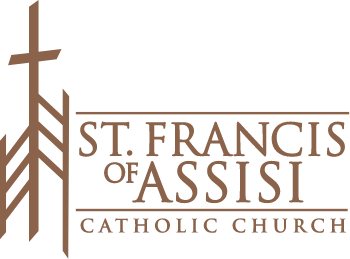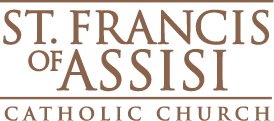Monsignor McGread was fond of saying, “You will never find a U-Haul behind a hearse.”
Jesus himself warned of being overly attached to wealth. To the rich person who stored up grain for himself, he said, “You fool, this night your life will be demanded of you and the things you have prepared, to whom will they belong?” (Lk 12:20).
Wealth is a gift given to be of service to others. Money is like seed: when it is spread out, in the right conditions and with the proper care, it springs forth new life. The stewardship way of life is not primarily about money. For example, if a parish were to be destitute, living in abject poverty, the persons of that parish would still be called to stewardship. Stewardship is primarily about self-gift arising from gratitude for God’s abundant gifts. Our finances are one aspect of that self-gift. Money, though it is needful in the life of a parish, is first a symbol of the self-gift that a disciple has already made.
The giving of treasure is analogous to a sacramental. A sacramental, like a holy medal, is not a source of grace but a symbol of a grace given in Jesus Christ. So too, one’s treasure is not the gift, rather it is a symbol of the gift of self that one has already given. Fr. Lanzrath has said, “The giving of our money is, in fact, a giving of ourselves … representing the gift of our labor … our heart … our life.” What we put in the basket, what is symbolized in the offering of bread and wine, is our very self.
As Bishop Michael Jackels, former Bishop of Wichita, taught,
“Whether or not you participate in the collection is going to have a consequence on how deeply you participate in the Eucharistic prayer and how fruitfully receiving Holy Communion is going to be for you. Because what I put into the basket is a concrete expression of my gift of self. That’s the only gift I have to give. I can pull money out of my wallet. God can take that from me without asking me. But the one thing God can’t take unless I give is my self, my gift of self, expressly as it is exercised by my will.”
The collection at Mass is primarily about giving of oneself; only secondarily is it about pragmatic or financial concerns.
Vatican II only spoke about physical giving twice and this in non-explicit terms: “They should especially make missionary activity their own by giving material or even personal assistance. … It is a duty and honor for Christians to return to God a part of the good things that they receive from Him” (AA, 10).
We see here the inference of treasure (material) and talents (personal assistance) with the addition of making “a return to God” in gratitude for what he has given us. The Code of Canon law adds, “The Christian faithful are obliged to assist with the needs of the Church so that the Church has what is necessary for divine worship, for the works of the apostolate and of charity, and for the decent support of ministers” (CIC, no.222; no.1261) and includes the need to support various appeals (CIC, no.1262).
Notice, specifically, the gift supports the apostolate. In other words, the motivator for giving generously arises from the Church’s mission, “Go, therefore, and make disciples of all nations, baptizing them in the name of the Father, and of the Son, and of the Holy Spirit” (Mt 28:19). This mission is carried out through evangelization. When people are inspired to take up their role in this mission, they will also be inspired to grow in their generosity in giving their time, talent, and treasure. At every moment stewardship must be a faith response to this mission – a response in trust.
Father Jarrod Lies, Pastor

